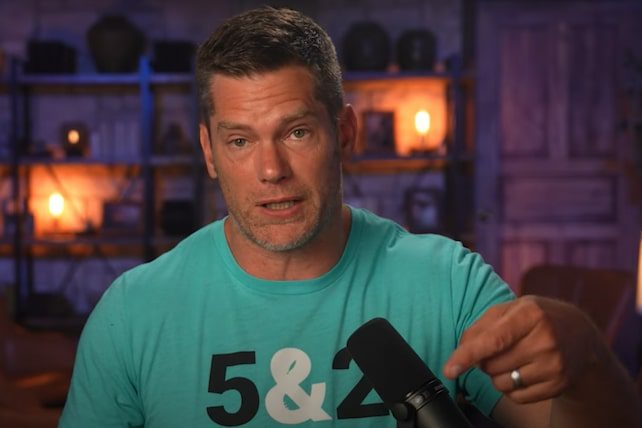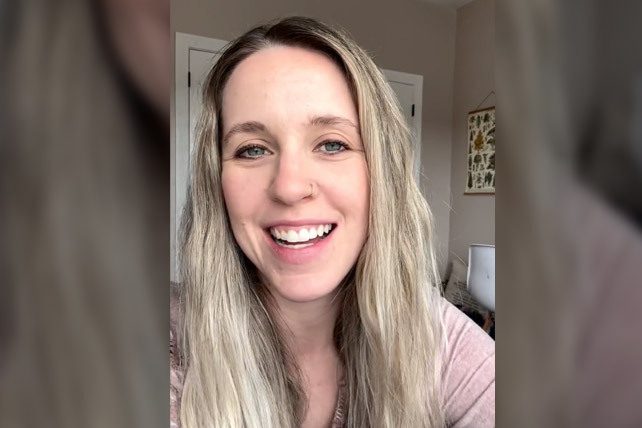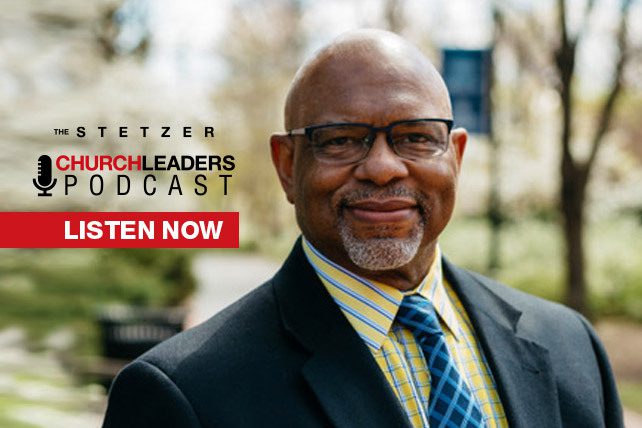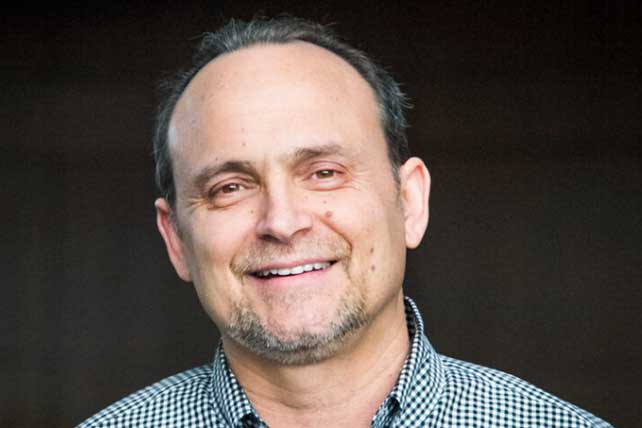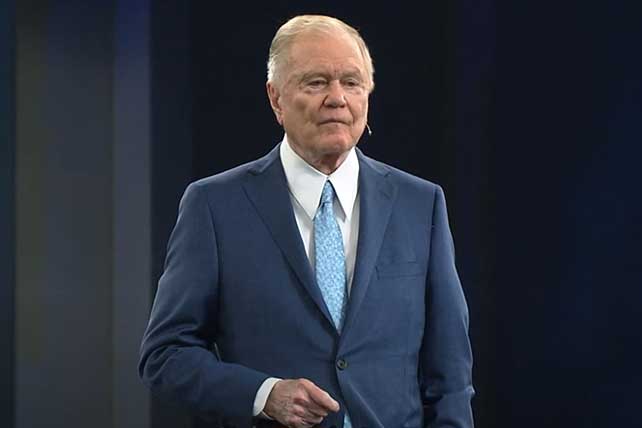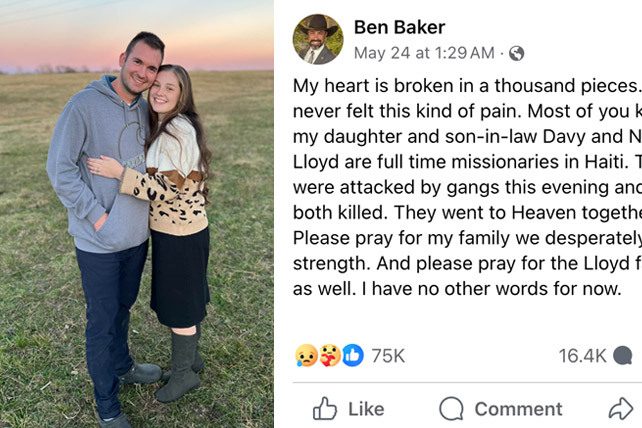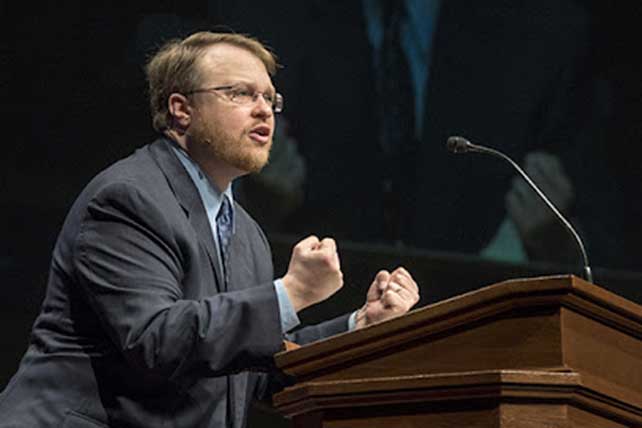Dennis Edwards on The Stetzer ChurchLeaders Podcast.mp3: this mp3 audio file was automatically transcribed by Sonix with the best speech-to-text algorithms. This transcript may contain errors.
Voice Over:
Welcome to the Stetzer Church Leaders Podcast, conversations with today’s top ministry leaders to help you lead better every day. And now, here are your hosts, Ed Stetzer and Daniel Yang.
Daniel Yang:
Welcome to the Stetzer Church Leaders Podcast, where we helping Christian leaders navigate and lead through the cultural issues of our day. My name is Daniel Yang, national director of Churches of Welcome at World Relief. And today we’re talking with Doctor Dennis Edwards. Dennis is associate professor of New Testament, as well as vice president for church relations and dean of North Park Seminary in Chicago. He’s ordained in the Evangelical Covenant Church and has worked in urban ministry for over three decades. Today, we’re talking about his book, humility illuminated the biblical path back to Christian character. But first, let’s go to Ed Stetzer, editor in chief of Outreach magazine and the dean of the Talbot School of Theology. You’re talking to.
Ed Stetzer:
Two deans today, Daniel Yang. That’s kind of fun. So two seminary leaders, that’s that’s sort of interesting. We I don’t think we’ve ever had another seminary leader on. And to talk about humility, the jokes, I’m afraid, are going to be many today because literally we’re talking to Dennis, our Edwards, who wrote the book on humility. And this is an old joke with John Dixon. He wrote humility, and I think he spoke at the Global Leadership Network Global Leadership Summit on the book. And you cite him in your book, but he, um, you know, everywhere he goes, he’s like, everyone sort of makes that joke. So I know you, you have stepped into this space, Dennis, and so you’ve got to expect it. But and I’m glad you did, though I think it’s fascinating. In your book, you write the church in United States, and perhaps in other places throughout the world needs to recover, respect and reenact biblical humility. We Christians are fractured, but humility will help us here heal. So let’s start with how do you define it? Why is it essential for Christians? Why does it matter?
Dennis Edwards:
Yeah. Thank you, and I appreciate this opportunity to have a conversation with you. Uh, humility. I define as a posture of submission to God, which works itself out in, um, uh, I will say a, an embodiment, a in actions, in a way of being that is peacemaking and reconciling. So those two basic movements, submission to God and then being a peacemaker with others. Okay.
Ed Stetzer:
So so when you think in terms because I guess right now we’re living in a moment where there’s a whole wing of Christians who think the answer to the current cultural moment is not humility, that we’ve had too much humility, too much deference. Right. And more um, and of course, when we go back 2000 years ago and you explore this in the in the book, I mean, humility wasn’t even a cultural value. We think of it today like humility, compassion, because that’s cultural values. But those were not cultural values 2000 years ago. Unpack that a little bit for us, because and maybe in this countercultural moment, going back to 2000 years ago wouldn’t hurt us.
Dennis Edwards:
Right in, in the world, excuse me? In the world in which the New Testament emerged, humility was not considered a virtue as you as you noted. In fact, even the language of humility that the apostle Paul uses, that Peter uses that we see, um, in Matthew’s gospel describing Jesus, that language was was used to describe traits, character traits that were not valued at all, that were the kinds of things that would not get you honor in a society based on honor and shame. Right? So the idea of of willingly submitting yourself to someone else or, or putting yourself in a position that, yes, could be deferential, or at least I’ll say, at the very least respectful of somebody who’s not of your station. Those kinds of actions were not going to advance you in society. And I would say the same is true today. We we tend not to pay attention to the people who are, um, around us doing the things that we don’t respect. You know, people are cleaning the floors or serving our tables or doing those things. We we don’t even notice them in our society very much. And, uh, humility would be a posture that recognizes others and seeks to build, you know, some sort of concord.
Daniel Yang:
I’m wondering, uh, what your perception of humility, how it’s changed over the years because oftentimes people think humility as, you know, being a pushover or being soft or maybe even being, um, unhelpfully weak. So help us think through some of the misconceptions and maybe your own journey of, you know, understanding humility over time.
Dennis Edwards:
Yeah. Thank you. I do try to talk about that in the book because I had a mixed bag of views. I mean, I didn’t know what humility really was. And, and, uh, and I did think it meant, you know, in, um, in one cultural place, you know, I worked in the Midwest for a while and in Minnesota, and I maybe I shouldn’t name the place, but there’s sort of a reputation of people being kind and such. But but the reality is, um, nobody wanted to put themselves in a position of looking like they were stepping forward or taking too much. Right. So you would have one last piece of dessert we’d have in the break room at church one, and they would not take the last one, but they’d cut it in half and take, you know, half of one. And there’s this. That humility means just not doing anything that would highlight myself in any way. So you had to be deferential, passive, even weak, all those things that you just touched on. But I don’t think that was the case. When we see when we look at Jesus or we look at the way, um, humility is described in various places throughout the Bible as I try to trace in the book. So one quick example would be Jesus, right, who describes himself as humble in heart and even gentle in Matthew 11. Right, come to me, all you who are weary and heavy, heavy laden. But in that same book you see him later denouncing hypocrisy. Woe to you, you know, teachers of the law, scribes, Pharisees, hypocrites. And you do this, you say this, but you do this other thing. So this powerful persona to denounce injustice and hypocrisy is also the same person who invites all of those who are weighed down. So to me, that’s what humility really is. It’s not just taking the, you know, not taking the last cookie or something. It’s really paying attention to those who are hurting in our society and speaking out against the things that are wrong.
Ed Stetzer:
Yeah. And I like, I like, um, I like that, first of all, having lived in the Midwest, you know, we would have been I don’t we didn’t overlap when I was there at Wheaton, but but we I mean, it’s a whole different thing, like the deference to others. And I’m from I grew up in New York. I think you lived in Brooklyn. Some of I remember I grew up in New York and and, you know, and humility is a cultural value even for New Yorkers. And it looks different. It’s not we don’t we don’t necessarily cut the last piece of cake and share it. Right. But you still have to have that humility. So one things I like about that is that, and a lot of times when someone becomes a dean like you is people forget you had a field. You have a scholarly field, your New Testaments, your scholarly field. Right. And so you this is a deeply biblical New Testament, particularly rooted book. And so let’s talk a little bit about that. So sure, what do Scripture and the example of Jesus described in Scripture. What are some things they teach us about humility?
Dennis Edwards:
Yes. Thank you. The um, that scriptural work. Yeah, I tried to go from from the Old Testament and move my way into the New Testament. And but that focus on Jesus that you just mentioned, I would be to see those two things in my definition. You would see this posture of submission to God the Father. You would see that as being the very reason why Jesus did all that he that he did. He would say that that’s his mission, right? So that posture of submission to the father, but then it plays itself out in, in acts of, of mercy, acts of justice, acts of reconciliation, that kind of thing. But that’s also involves truth telling. So we see it in Matthew’s gospel. I highlighted Matthew’s gospel because partly because of the vocabulary of humility is pretty strong there. So as I mentioned already, that 1129 passage, but the basic movement is that you see it in the life of Jesus, you see it in the teachings of Jesus, and then you see it played out in the way. Um, you know, some New Testament writers are talking about humility, the thing that helps to bring communities together in those virtue lists that we see, like in Paul or in, in, in Peter, I’ll say one more thing is that there’s a refrain that we see in the Old Testament, um, God opposes the proud but shows favor to the humble. That refrain works itself through the Old Testament. It works itself into the even the the Apocrypha. Like a book like Sirach, it works itself into the New Testament, getting quoted or alluded to a few times, and then even works itself into the Apostolic Fathers, who then, you know, are showing how humility ought to be a virtue that actually marked and and identified Christians in their world.
Daniel Yang:
You know, uh, Doctor Edwards, there’s that portion of Scripture where Jesus is talking to his his disciples, apostles, uh, about, you know, don’t do what the Gentiles do. You know, they lord it over others. And he’s in some ways, he’s speaking to, uh, church leaders or those who lead the people of God. And, uh, what are you observing with the struggles that church leaders have in the area of humility? And then so that’s the first question. And then also talk about, is it possible to have like strong leadership that’s still humble?
Dennis Edwards:
Yes. To that second question. And I can unpack it later. But but for your first question, I mean, you know, it is difficult because there are pressures. It’s a societal pressure. We know that to, um, make a mark, or at least we believe and feel that to make a mark in the world. And you can define making a mark however you like. Um, we have to be louder than somebody else. We have to prove ourselves to be better than someone else. So we buy into the same competitive mindset that’s operative. And the rest of the world I, you know, I mean, people will tease me about that notion, I jokingly say, and actually, not jokingly. I say people don’t like the participation trophy because they think it minimizes the stars, you know, and that we’re just coddling everybody. I was one of those kids bused to school in New York. I grew up in the 60s in New York. I got bused to another neighborhood. It took me an hour to get to school where my peers could walk and could, you know, maybe ride their bikes. Um, just showing up was a feat. So for me, participation trophies say I want to respect the fact that you showed up, even though it could be really challenging for you. So I’m saying pastors are dealing with this notion that just showing up is not good enough. I’ve got to somehow prove that I’m better than someone else. And then in the social media world, I got to be an influencer. Now I’ve got to somehow show. So I think we have these pressures to say it’s not just about the faithfulness that I show to the people that I’m serving. It’s I’ve got to somehow make this mark, and we become as competitive as the ancient Romans, in my view. So that’s the first part of the question, I think.
Ed Stetzer:
No go the second part, you’re going to go second part, because I think the strong leadership question is because you’re I mean, at North Park, you know, or at Wheaton where I was or where I am. I mean, we’re deans and this is a tumultuous time. We had to make hard decisions. I can assure you that somebody that you had to, um, you know, say, this isn’t working. And we, you know, we’re going to need to, you know, let you go or else they be they don’t necessarily see you as humble in that situation. They see you. I mean, sometimes it’s overbearing. So how do because you made hard decisions that impacted them negatively. So how do you humbly lead and make hard decisions as a strong leader?
Dennis Edwards:
Well, I would like to think that the hard decisions aren’t the only decisions that are made. I mean, there’s a bunch of decisions that lead up and there’s a certain posture that one can develop in leadership that frankly, I think one of the best things we can do as pastors and leaders is to truly lean into that word. Shepherd is that if we care for the flock, this is what Peter would say in first Peter five. As he’s talking to the elders, he says, you know, guard the flock. So part of my persona is to be that kind of person that recognizes other people. I’ve been in plenty of organizations, churches and other places where people are disrespecting me. Didn’t know who I was, didn’t care who I was, didn’t think I was very bright. So when they make a decision that affects me, it hurts a lot because I think you don’t even know what I’m dealing with. But if I can demonstrate that I care about the people that I work with, then the hard decisions, oh, it’s not necessarily going to make me popular, but they’ll be able to put it together in a context and say, well, I believe Dennis cares about me. This had to have been a hard decision to make, and they’ll tend to give me benefit of the doubt. But you know what? At the end of the day, that really doesn’t matter, because in my definition of humility, it’s a posture of submission to God. It’s going to work itself out in peacemaking. It doesn’t mean that everybody is going to understand, but it does mean I, my my hope and my belief is it means they won’t be able to accuse me of being overbearing because my way of life is not to be, that.
Daniel Yang:
I want to come back to what you’re seeing in Jesus and how he modeled humility. How that can be helpful to pastors and church leaders today is, you know, Jesus was in a lot of different situations where he was being tested and where, like you were saying, he had to get it really show up. Um, what do you think church leaders today is missing from Jesus’s life when it comes to effective leadership and how to apply humility? When to apply it? Because I think sometimes depending on your personality and depending on your leadership style, leaders can be very brash or very directive. Um, where do we see from Jesus, where he knew exactly when to apply humility and how to apply it?
Dennis Edwards:
Yeah, I appreciate the question. I’m struggling a little bit because my my part of my thesis is that I don’t think humility is something that gets applied.
Ed Stetzer:
I think it’s more of a characteristic and something characteristic because even as you’re asking that, Daniel, I was like, what are you saying? Because there are times you don’t help unpack that a little more. Daniel. Before. Dennis. Yeah, sure goes, because it sounds strange to me too.
Daniel Yang:
Yeah. So when do you when does a leader know when to show up and, and, uh, and, uh, as you were saying, um, applied their strong leadership. And how do they do that in a way that’s humble, that’s not aggressive, that’s not, uh, you know, Jesus flipped tables. Is that an act of humility? Um, he knew when to step back and to step up. So I’m I’m wondering from your perspective, how do we make those discernment?
Ed Stetzer:
The Setser Church Leadership Podcast is part of the Church Leaders Podcast Network, which is dedicated to resourcing church leaders in order to help them face the complexities of ministry. Today, the Church Leaders Podcast Network supports pastors and ministry leaders by challenging assumptions, by providing insights and offering practical advice and solutions and steps that will help church leaders navigate the variety of cultures and contexts that we’re serving in. Learn more at Church leaders.com/podcast network.
Dennis Edwards:
Well, I do like that last phrase, the way you said when to step back and when to step up. I think that there’s something really quite, um, wise about that that is consistent with the nature of humility. Yeah. I mean, the turning the tables is, um, is actually that’s a great example. I don’t actually unpack that one in the book because I feel like it’s. It’s pretty well known in common. But even that when Jesus does it and communicates that it’s the zeal for the house of the Lord that he has, um, stepped into a situation that he sees as wrong and unjust and leans right into it. To me, that actually is an act of humility. Humility is my submission to God. And, and and that means I can call out injustice, because calling out injustice means I’m making things right for, or helping to make things right for the people who are who are being hurt or overlooked or marginalized. So for me, I, I lean into that because there maybe I should say more clearly. I have a fundamental sense that what humility does when I talk about making, um, being reconciling is that there’s a, there’s a slant toward those who are marginalized and facing injustice. So for me, humility is about making sure that those folks have a voice. So and I see Jesus doing that. I see him speaking up on behalf of healing those who are hurt and pushed to the sides in their world. So for me, humility does that, even if it means that my confrontation of injustice is going to ruffle the feathers of people who have power. So it might come off as brash and strong. I think it comes off as godly, right?
Ed Stetzer:
Because you’re making a you’re making a decision that might be, you know, a hard decision for an individual to receive, but maybe for the good of the organization, for the good of others, for the good of the flourishing of their organization, and for the good of those who might be marginalized otherwise not heard. So that all okay, that that that makes sense. And Daniel, thanks for clarifying that, because I think it got to a good question because, um, again, I think sometimes and again, and people can get the book as the humility illuminated the biblical path back to Christian character, because, again, I think this is something and we saw it. We see it when people really dig deep and try to understand New Testament teaching or biblical teaching about humility. It’s not the necessity of constant not making hard decisions. It’s not the necessity of of not being a good and effective leader. It’s a question how you do those things. So talk to us a little bit about how you have sort of seen in the nitty gritty of leading, maybe even now in your new role at North Park. What are some ways that you’re exercising humility in leadership that might be helpful to pastors and church leaders who are listening?
Dennis Edwards:
Yes. Well, I hope it can be helpful. My story is has been a bumpy one, so I won’t get into all of that. But because I’ve served in churches where I wasn’t, um, part of an ethnic majority. So I’ve been in churches where African Americans were a small number. And even as a leader in those spaces, that’s a whole nother conversation. Because humility, while some people might assume it means passivity and deference, it still means speaking the truth and love. Right? So you’re still going to ruffle some feathers. And I did, I would say here, but in both cases in the church and here, it’s back to what I was saying a little bit earlier, is that I try to spend my time, um, helping people to be seen and be heard and know that they’re valued. That’s part of leadership, in my view. So humility entails listening. I want to know people’s stories. I want to know what’s important to them. So we did have a tough decision to make a couple. Well, it’s been about a year and a half ago, and I won’t get into the details of it because people will know too much about it. But, um, but it involved, you know, whether we would invite a certain person to be on the, on the part of our team here. We had a vacancy and, and my colleagues were divided on this.
Dennis Edwards:
You know, we had we struggled a bit to know if that if. If the purse, the people that we were thinking about, I shouldn’t even say the person. That’s not even the case. It was more than that was the that was the dilemma, right, of which direction we should go. And and I suspended the conversation, the decision, because they saw me as perhaps being a tie breaker that would come in and just make an edict and say, it’s got to go this way. And I said, no. I said, why would I do that? And alienate half, the half the team? I said, we’ve got to find a third way. So I found out there were several people who later, you know, were sighing with relief that I didn’t just come in with an act of authority and say, look, it has to be this way. Now, that’s a small example of something that, you know, that that maybe could everyone would have said, hey, let’s do that. Let’s do the Solomon split the baby thing. I mean, but but in some ways, I think their trust was developed because I wasn’t trying to push a dentist agenda as much as I was trying to figure out what’s helpful for the whole community. And I think that that’s part of what leadership entails.
Daniel Yang:
Yeah, I like that. I mean, it goes back to your point about how humility is linked to peacemaking. And, uh, and even even in that example, reconciling the divided opinions. You write a lot about suffering. Uh, can you talk about, like, the role suffering plays in being humble?
Dennis Edwards:
Yeah, that was a hard chapter, because different people will define suffering different ways. And we tend to um, I say we now and I’m defining we as sort of broad American Christianity, maybe. But there’s a sense that we think we know how to help somebody when they’re suffering. And sometimes we don’t. We think we know. So we’ll give them a platitude or we’ll give them a Bible verse or we’ll, you know, something like that. So I think the first order of business in humility is for the person who’s observing the sufferer, right, is to not assume that we know what that person needs, but to enter in as best we can to, to help them, uh, simply by being with them and walking alongside and figuring out how how we can be helpful rather than assuming it. But there’s humility also on the part of the person who is suffering. That’s a hard one, because it does entail still a submission to God that says, I can’t give up God. It’s job like, right? It’s like, I’m not going to give up on God when I’m suffering, because God really is my only hope, even though I’m in the midst of this thing and I can’t figure out why. Um, so part of that humility. But then there’s another piece of that humility that when people are trying to help is that we actually take it, you know, and we’re willing to receive the help that people are giving us rather than isolating ourselves, which can also happen when we’re suffering and and feeling whatever we’re feeling, we can pull away rather than lean into some of the relationships that God brings our way. So those are some basics that I see in the Scripture, and also just in my pastoral years of ministry.
Ed Stetzer:
Yeah, that’s the part probably that I don’t like about your book is that, as I’ve seen it play out in a lot of situations where one of the ways God brings humility into people’s lives is through suffering. And some of the people that I may be new in their 20s and the 30s, and then they just hit a wall or a wall, hit them. Yeah. And but it was transformative. And they would embrace that suffering as something that had to turn towards humility in their lives. But can I just say Dennis Edwards I don’t like that.
Dennis Edwards:
Yes. Yeah. Well, I hear that really well. And so yeah, I can right now as an older person looking back and saying a lot of what you just said is that there’s this there’s this wisdom, right, that comes from having endured that. But but nobody wants to welcome, uh, suffering. So I tried to be really gentle in that chapter because I wanted to respect the fact that we all will go through something we’ll label suffering. But at the same time, um, uh, it doesn’t it doesn’t have to be the end, right? I mean, it can it can help us to move on to a new a new beginning. Yeah.
Ed Stetzer:
And I don’t know too many people in ministry who wouldn’t at least give lip service to the idea that I would like to be more humble. Sure. Um, and I don’t I don’t know why we have that aspirational value, but often that we don’t necessarily pursue humility. So. So if someone is listening and they’re like, man, I think that’s a good thing. The Bible teaches, that’s a good thing. I see that in the character of Jesus. Um, and again, they can pick up your book. And his humility illuminated the biblical path back to Christian character to learn more. But but so here’s what I would swing around to. So if I believe this is important, what are some things that our listeners or average pastors, church leaders can do to start cultivating humility in their own lives? Yes.
Dennis Edwards:
Um, well, one thing is, um, I may I may come off being, um, less, um, people might not like everything I’m going to say because. Because part of it is I think we need to reject in some level what we think. Is the is the is what our jobs are supposed to look like because we’ve taken our cues from certain high profile people. I um, so for part of that is to ask myself, who do I think I’m trying to be like? Or what do I think I’m trying to be like? Or do I really think I’m supposed is? Do I really think it’s about developing a platform? Is that so? I think we have to ask some existential questions like, why are we doing this? Part of that cultivation is also, since I define it as submission to God, is cultivating, of course, a relationship with God that starts to grow over time, that’s nurtured over time. And all of us in Christian leadership struggle. I think, like anybody else, to say, I want to make sure I have that time for prayer and for Scripture reflection, for the meaningful, you know, disciplines of the faith that that can help me to thrive in my relationship with God. And that doesn’t sound particularly earth shattering and such, but I can tell you, I spent a lot of times when I was younger as a pastor, listening to the people who thought I listening to the people I thought I should listen to because they had big platforms and so forth and, and all of that.
Dennis Edwards:
And I know that sort of counter to the whole, you know, evangelical machinery. But, uh, my, my thing is, look, it’s like they say all politics is local, like, you know, um, all, all pastoral ministry is really local. And so rather than me trying to spend all my time modeling myself after somebody I don’t even really know, but who’s out in the media? I need to get to know my people. I need to get to know the context that I’m called to serve in, and to love those people and to love the the, you know, the city and the context that I’m called to me that that shows a posture of humility. I’m really willing to learn and be shaped and to be, um, um, uh, malleable enough to work in whatever place God sends me and not think, oh, my ultimate goal is I got to be the person who demands a big platform, because after all, I got this great education or I got all these things. I don’t think that’s the way we ought to move. Yet. I still will say the refrain that I mentioned earlier, God is anti the proud, and that’s actually the Greek way of putting it. It’s anti the proud, but shows favor to the humble that ultimately there is a reward that God gives. It might not look like an earthly reward that we might crave, but there’s an ultimate favor that God gives when we are willing to say it’s not what, it’s not the platform that I’m building, it’s the faithfulness that I’m exhibiting.
Daniel Yang:
Uh, we’re we’re nearing the end of our our conversation with you. It’s been so helpful. Uh, you do share one painful story in, in the book about, uh, being a failed church planter. I’ve been there. I know that story myself personally. And so, um, you know, as you’re talking to pastors and church leaders and they’re dealing with failure, set out to do something. I think you talk about how you were planting that church in Brooklyn, and it just didn’t turn out the way that you were expecting. It taught you a lot about humility. Uh, talk to the pastors and leaders listening. You know, what is humility and failure? How do those two work together? And how can you redeem failure through humility?
Dennis Edwards:
Yeah.
Dennis Edwards:
Um, well, I would like to think that church planting experience is not a failure. I think that’s one I think, um, failure. I’m going to put that in a moral category. I’m going to put that in. You know, if I cheated that church out of money or cheated my wife or something, I’m going to put failure in that category. I’m going to say I didn’t, that the church didn’t take off. And there were so many factors in that that were outside of my control. I’ll own the things that I was, um, uh, not as skilled at. At least I tried to. That list probably keeps growing, but I would say they, um, that when we don’t achieve the things that we thought we would achieve, I’ll put it that way. There’s a certain certainly a lot of pain that goes with that. I’m not going to minimize that at all. We aspire to something that we didn’t get there. What I’m what I’m hoping is that if we can still come back to this notion that my, my posture before God is fundamentally the most important thing, then, then hopefully that can give me a place to, to to grow from and find some hope in. I mean, let’s let’s be real about this. We’ve got the most humble person, Jesus, right, who we see in that beautiful Philippians hymn. It doesn’t exploit his godliness, but what happens? He gets humiliated and gets killed. So would we call that failure? Of course not. The rest of the hymn says, you know, God therefore super exalts him. Hyper super hyper exalts him and gives him a name above every name. Right? So but it looked like failure on one level, right? And certainly so there’s going to always be that for us. There’s going to be this sense that we’re doing something. It doesn’t turn out the way it’s going to look like a failure. But ultimately it’s about faithfulness.
Daniel Yang:
We’ve been talking to Doctor Dennis Edwards. You can learn more about him at Rev doctor. Com that’s Rev Dr. d r e com. Be sure to check out his book humility illuminated the Biblical path back to Christian Character. Thanks again for listening to the Stetzer Church Leaders podcast. You can find more interviews, as well as other great content from ministry Leaders at Church Leaders Campus and through our new podcast network, Church Leaders Campus Network. And again, if you found our conversation today helpful, I’d love for you to take a few moments. Leave us a review that help other ministry leaders find us and benefit from our content. Thanks for listening. See you on the next episode.
Voice Over:
You’ve been listening to the Stetzer Church Leaders podcast for more great interviews as well as articles, videos, and free resources, visit our website at Church leaders.com. Thanks for listening.
Sonix has many features that you’d love including upload many different filetypes, collaboration tools, enterprise-grade admin tools, share transcripts, and easily transcribe your Zoom meetings. Try Sonix for free today.


